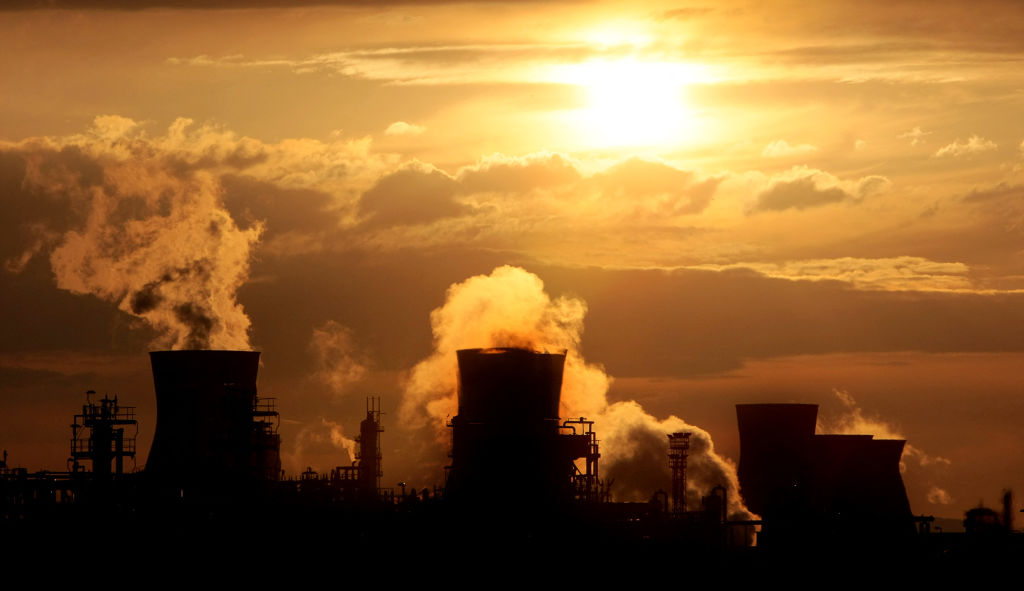There is a saying ascribed to the statistician Nassim Nicholas Taleb that captures what is currently happening in global energy markets: “I have seen gluts not followed by shortages, but I’ve never seen a shortage not followed by a glut.” After the energy crisis of 2022 following Russia’s invasion of Ukraine, we are now most likely entering a period of a “staggering oil glut” as the Financial Times reported last month.
While the “geopolitical risk premium” keeps prices elevated, BP has just issued a profit warning based on weak trading, at the same time as pressure rises on shares of Shell and TotalEnergies. Investors are clearly worrying about future returns as the companies reduce oil and gas production.
Not all companies, however, are reacting in the same way. While we see a scaling back in Europe, like BP is doing at its Gelsenkirchen refinery in Germany at a cost of $2 billion, we are witnessing an expansion of economic activity in the US. American oil companies are on a mergers-and-acquisitions spree, positioning themselves for the inevitable post-glut price surge.
This is mainly due to these companies knowing how commodity markets work. As with everything, the price of oil rises and falls over time. When prices surge, demand usually decreases, prompting new investments in supply. Conversely, when prices plummet, new markets for oil emerge, particularly in developing nations.
This means that, unfortunately for consumers, any oversupply is most likely to be short-lived. The long-term demand for hydrocarbons is still steadily climbing in a gently oscillating upward trend, despite the Net Zero fixation. Equipped with this knowledge, oil companies are generally prepared to increase output over time, but they will also attempt to do so in the most profitable way possible, which means retaining a level of scarcity.
The expectation in the United States is that the domestic reserves of oil and gas will continue to be exploited, and that a slowdown in demand and an excess in supply is at best temporary. Given the long-term nature of capital investments in oil and gas infrastructure, even at times of low profitability investments are likely to pay off, especially if Donald Trump and his pro-drilling policies make a comeback in the White House.
In Europe, however, expectations are the exact opposite. Just take a look at the new British government under Keir Starmer, which plans to increase windfall profit taxes on the oil and gas industry, end the issuance of new exploration licenses for the North Sea, and significantly expand wind, solar, and energy storage projects. Add the Left-wing governments of Germany and possibly France into the mix and there really is no incentive left for oil and gas companies to make massive capital investments in energy infrastructure in these countries.
This should be a warning for everyone who believes that there will not be a future energy crisis. Contrary to what optimistic green Europeans might believe, prices will rise again because the underlying global trend is one of increased, not decreased fossil fuel demand. We have not even reached the global peak of fossil fuel demand, which is expected to take place before 2030.
From AI to data centres to the developing world attempting to catch up economically, many advancements are extremely energy-intensive. Google’s energy consumption has increased by nearly 50% in the last five years due to AI alone. If European companies scale back production, then European countries will be forced to import energy at a price over which they have no control.
The green energy transition may turn Taleb’s maxim on its head, at least for European countries on the warpath to Net Zero: after this glut, a costly shortage could follow.











Join the discussion
Join like minded readers that support our journalism by becoming a paid subscriber
To join the discussion in the comments, become a paid subscriber.
Join like minded readers that support our journalism, read unlimited articles and enjoy other subscriber-only benefits.
Subscribe